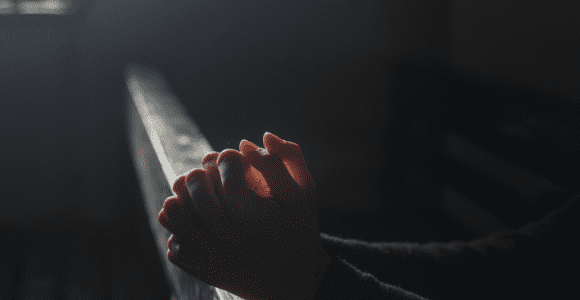Welcome readers! Please subscribe through the button on the right.
(Read this series from the beginning at Part 1 and Part 2.)

After the prayer, Jesus and the disciples share an anecdote intended to emphasize the importance of persistence in prayer. The story is rooted in Mediterranean shame/honor cultural expectations and the social tensions connected to them. In that region it would be shameful not to show hospitality to a friend who arrives late from a journey, and it would also be shameful for someone to approach their neighbor to help show hospitality very late at night. The person in the story chooses to risk the shame of going to their neighbor late at night over risking the shame of not being hospitable to their unexpected guest.
It’s difficult for us in our contexts today to understand how deep these social expectations of hospitality were in this culture and how strong the sense of shame would be if someone failed to meet them. A host cannot bring themselves to deny sustenance to their guest and must thus ask for help, despite the inconvenience hour. Luke adds that the neighbor finally decides to help because of the host’s persistence.
It’s awkward to use a story about hospitality to teach a different value, persistence in prayer. But Luke’s gospel attempts it nonetheless.
That’s how this reading becomes problematic. Presuming that God is good and that goodness is the only variable in prayers being answered, Luke’s Jesus uses some troublesome absolute language:
“Ask and it will be given to you; seek and you will find; knock and the door will be opened to you. For everyone who asks receives; the one who seeks finds; and to the one who knocks, the door will be opened.”
If only it were that simple. If only answered prayers were solely dependent on the variable of an all powerful, good Divine being. Absolutes like this have produced atheists when reality doesn’t line up with the teaching.
Because everyone who asks doesn’t receive.
Sometimes those who seek don’t find.
Sometimes the door remains closed in spite of our persistent knocking.
And it’s okay to admit this!
I don’t claim to know how God, the universe, or prayer work. What I do know is that absolute language like this, used by the author of Luke’s version of the Jesus story, has proven to be more troublesome than helpful when people experience bad things in their lives and the prayers we need answered are not.
In this month’s recommended reading from Renewed Heart Ministries, Nancy Eiesland quotes Nancy Mairs’ book, Carnal Acts: Essays:
“The bodies we inhabit and the lives those bodies carry on need not be perfect to have value. Bad things do happen, we know—to bad and good people alike—but so do good things. Life’s curses, like life’s blessings are always mixed.” (In The Disabled God: Toward a Liberatory Theology of Disability, p. 13)
I find the expectation that some prayers may not be answered or are even unanswerable to be more life-giving in my own work of endeavoring to shape our world into a safer, more just, more compassionate home for everyone.
I never see the Jesus of the gospels waxing eloquent in Hellenistic philosophical fashion to explain why bad things happen and why some prayers go unanswered. What I do find is a Jesus who calls his followers to keep doing what they have the capacity to do to be the answer to other people’s prayers. Being someone else’s answer is something I can often do (not always). I’m going to have to accept that is enough.
Not all prayers are answered. And they are not all answered for a multitude of reasons.
Yes, we can say that. We must, because it’s true.
When we don’t directly face the anguish caused because some of our most desperately wanted prayers are unanswered, the reality puts us in a state of torment. The conflict between what we think we are supposed to believe and the way things are causes a deep need for resolution that many never find. Some choose to simply live with the torment, and some of them are haunted by it. Others challenge what they have been taught to believe, and find rest.
I believe there is wisdom in facing this pain rather than living in denial.
It is in facing our disappointments that we begin to grieve and in the end our spirits are released.
Believing that everyone who asks receives can impact our personal well-being when we don’t receive. This doesn’t even begin to address how believing the absolutes about answered prayer can often relieve us of our own responsibilities to take action on behalf of others and sometimes even ourselves.
But I believe the path of healing begins not with believing that the door is always opened for those who just knock long enough, nor even with the belief that all prayers are answered, but instead with coming to terms with the reality that, for whatever reason makes the most sense to you and is most life-giving for you, sometimes we pray, and don’t receive.














